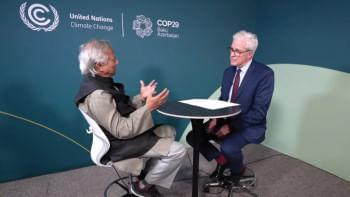Unconstitutionality of mandatory death penalty

Amidst of debate over the abolition of death penalty around the world, the higher judiciary in Bangladesh has come with a milestone judgement declaring mandatory death penalty unconstitutional. This judgement was pronounced in an appeal arising out of a Writ petition jointly filed by the Bangladesh Legal Aid and Services Trust (BLAST) and Shukkur Ali, a convict who was sentenced to death under the Nari o Shishu Nirjaton (Bisesh Bidhan) Ain 1995.
The Appellate Division of the Supreme Court declared section 6(2) (3) (4) of the Nari O Shishu Nirjaton (Bisesh Bidhan) Ain 1995 and section 34(2) of the Nari o Shishu Nirjaton (Bisesh Bidhan) Ain 2000 unconstitutional because they prescribe a mandatory death penalty for the offence of causing death after rape. The aforesaid sections were challenged as they violate Articles 7(Supremacy of the Constitution), 26 (Laws inconsistent with fundamental rights to be void), 27(equality before law), 31(right to equal protection of law), 32 (right to life) and 35 (Prohibition on cruel and degrading treatment or punishment) of the Constitution. The provisions were also questioned as it did not keep any scope of exercising the power of judicial discretions in awarding sentence. The judgement was delivered by the Hon'ble Chief Justice of Bangladesh Mr, Justice Surendra Kumar Sinha presiding over a bench comprising Justice Nazmun Ara Sultana, Justice Syed Mahmud Hossain and Justice Hasan Foez Siddique.
The judgment has some dynamic features. Firstly, it widens the scope of judicial discretions. For curtailment of such power may result into injustice. The constitution has guaranteed right to life and that can only be taken away through the due process of law. Due process of law not only includes law making process but also involves procedural protections with a view to ensuring fair trial and justice. By virtue of the device of due process of law, the judges can exercise their judicial minds in order to check unfairness and arbitrariness in judicial proceedings. Considering this, the Hon'ble judges in the aforesaid judgement ruled out the absence of judicial power of discretions in awarding sentence.
Secondly, the judgment carries few elements of rule of law which need to be emphasised in terms of law making process. For example, if we look at Article 31 of the Constitution, then we see that the Article not only guarantees equal protection of law but also imposes limitation on the power of parliament in the enactment of laws. Similarly, Article 7 and 26 works as safeguards against arbitrary law making process.
The Articles oblige the parliament to make reasonable laws. The judgment will make the lawmakers more cautious in maintaining reasonableness and rationality of law.
Thirdly, It reminds again that imposition of harsher punishment is not the sole way of ensuring justice and mitigating crime rate rather in some cases it disregards the standard of procedural fairness. The imposition of rigid penalty can impact negatively on the efficiency of courts and make sentencing less transparent.
Whereas the criminal cases in Bangladesh rarely see conviction, the imposition of harsher punishment can impact negatively on the offenders. While the offenders got the sense that the punishment is certain and the discretion of judges is limited then they might engage in committing crime out of vengeance and show disrespect towards the law.
Finally, this judgment secures the right to freedom from torture or cruel, inhuman or degrading treatment or punishment which clearly reflects the urge of the judiciary to close the gap between international and national standards of ensuring fair trial.
By declaring mandatory death penalty unconstitutional the judiciary has enriched the jurisprudence of punishment theory which is something new in the Bangladeshi context. It reminds us again that right to life necessarily includes right to respect for life.
THE WRITER IS LECTURER, FACULTY OF LAW, EASTERN UNIVERSITY.


 For all latest news, follow The Daily Star's Google News channel.
For all latest news, follow The Daily Star's Google News channel. 



Comments